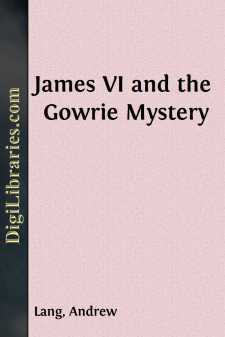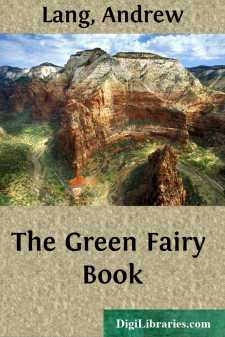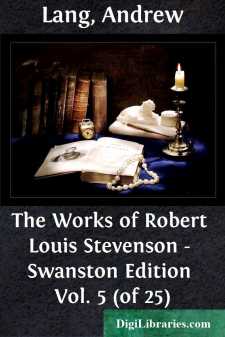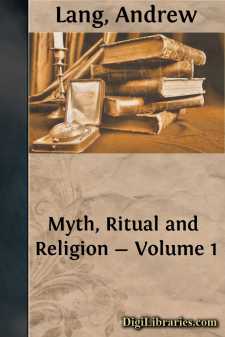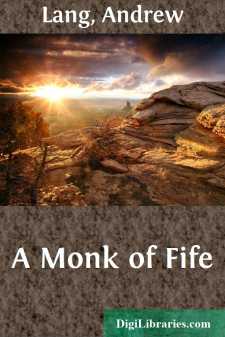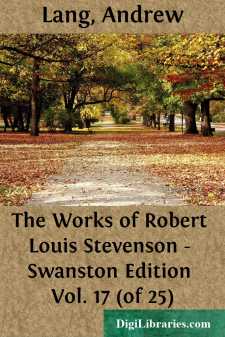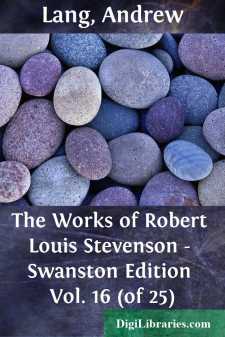Categories
- Antiques & Collectibles 13
- Architecture 36
- Art 48
- Bibles 22
- Biography & Autobiography 815
- Body, Mind & Spirit 144
- Business & Economics 28
- Children's Books 18
- Children's Fiction 14
- Computers 4
- Cooking 94
- Crafts & Hobbies 4
- Drama 346
- Education 58
- Family & Relationships 59
- Fiction 11829
- Games 19
- Gardening 17
- Health & Fitness 34
- History 1378
- House & Home 1
- Humor 147
- Juvenile Fiction 1873
- Juvenile Nonfiction 202
- Language Arts & Disciplines 89
- Law 16
- Literary Collections 686
- Literary Criticism 179
- Mathematics 13
- Medical 41
- Music 40
- Nature 179
- Non-Classifiable 1768
- Performing Arts 7
- Periodicals 1453
- Philosophy 65
- Photography 2
- Poetry 896
- Political Science 203
- Psychology 44
- Reference 154
- Religion 515
- Science 126
- Self-Help 85
- Social Science 82
- Sports & Recreation 34
- Study Aids 3
- Technology & Engineering 59
- Transportation 23
- Travel 463
- True Crime 29
Sort by:
by:
Andrew Lang
INTRODUCTION An old Scottish lady, four generations ago, used to say, ‘It is a great comfort to think that, at the Day of Judgment, we shall know the whole truth about the Gowrie Conspiracy at last.’ Since the author, as a child, read ‘The Tales of a Grandfather,’ and shared King Jamie’s disappointment when there was no pot of gold, but an armed man, in the turret, he had supposed that we...
more...
by:
Andrew Lang
To The Friendly Reader This is the third, and probably the last, of the Fairy Books of many colours. First there was the Blue Fairy Book; then, children, you asked for more, and we made up the Red Fairy Book; and, when you wanted more still, the Green Fairy Book was put together. The stories in all the books are borrowed from many countries; some are French, some German, some Russian, some Italian,...
more...
by:
Andrew Lang
Gentlemen, In the volume now in your hands, the authors have touched upon that ugly devil of crime, with which it is your glory to have contended. It were a waste of ink to do so in a serious spirit. Let us dedicate our horror to acts of a more mingled strain, where crime preserves some features of nobility, and where reason and humanity can still relish the temptation. Horror, in this case, is due to...
more...
by:
Andrew Lang
PREFACE TO NEW IMPRESSION. When this book first appeared (1886), the philological school of interpretation of religion and myth, being then still powerful in England, was criticised and opposed by the author. In Science, as on the Turkish throne of old, "Amurath to Amurath succeeds"; the philological theories of religion and myth have now yielded to anthropological methods. The centre of the...
more...
by:
Andrew Lang
CHAPTER I—HOW THIS BOOK WAS WRITTEN, AND HOW NORMAN LESLIE FLED OUT OF FIFE It is not of my own will, nor for my own glory, that I, Norman Leslie, sometime of Pitcullo, and in religion called Brother Norman, of the Order of Benedictines, of Dunfermline, indite this book. But on my coming out of France, in the year of our Lord One thousand four hundred and fifty-nine, it was laid on me by my...
more...
by:
Andrew Lang
CHAPTER I: ANCESTRY, BIRTH, EDUCATION, ENVIRONMENT: 1513(?)-1546 “November 24, 1572. “John Knox, minister, deceased, who had, as was alleged, the most part of the blame of all the sorrows of Scotland since the slaughter of the late Cardinal.” It is thus that the decent burgess who, in 1572, kept The Diurnal of such daily events as he deemed important, cautiously records the death of the great...
more...
by:
Andrew Lang
CHAPTER I.—The Old House YOU may still see the old Scotch house where Randal was born, so long ago. Nobody lives there now. Most of the roof has fallen in, there is no glass in the windows, and all the doors are open. They were open in the days of Randal's father—nearly four hundred years have passed since then—and everyone who came was welcome to his share of beef and broth and ale. But now...
more...
by:
Andrew Lang
THE BRONZE RING Once upon a time in a certain country there lived a king whose palace was surrounded by a spacious garden. But, though the gardeners were many and the soil was good, this garden yielded neither flowers nor fruits, not even grass or shady trees. The King was in despair about it, when a wise old man said to him: "Your gardeners do not understand their business: but what can you expect...
more...
by:
Andrew Lang
CHAPTER I THE ELEMENTS OF DISCORD: NATIVE The story I have to tell is still going on as I write; the characters are alive and active; it is a piece of contemporary history in the most exact sense. And yet, for all its actuality and the part played in it by mails and telegraphs and iron war-ships, the ideas and the manners of the native actors date back before the Roman Empire. They are Christians,...
more...
by:
Andrew Lang
THE SURNAME OF STEVENSON From the thirteenth century onwards, the name, under the various disguises of Stevinstoun, Stevensoun, Stevensonne, Stenesone, and Stewinsoune, spread across Scotland from the mouth of the Firth of Forth to the mouth of the Firth of Clyde. Four times at least it occurs as a place-name. There is a parish of Stevenston in Cunningham; a second place of the name in the Barony of...
more...


